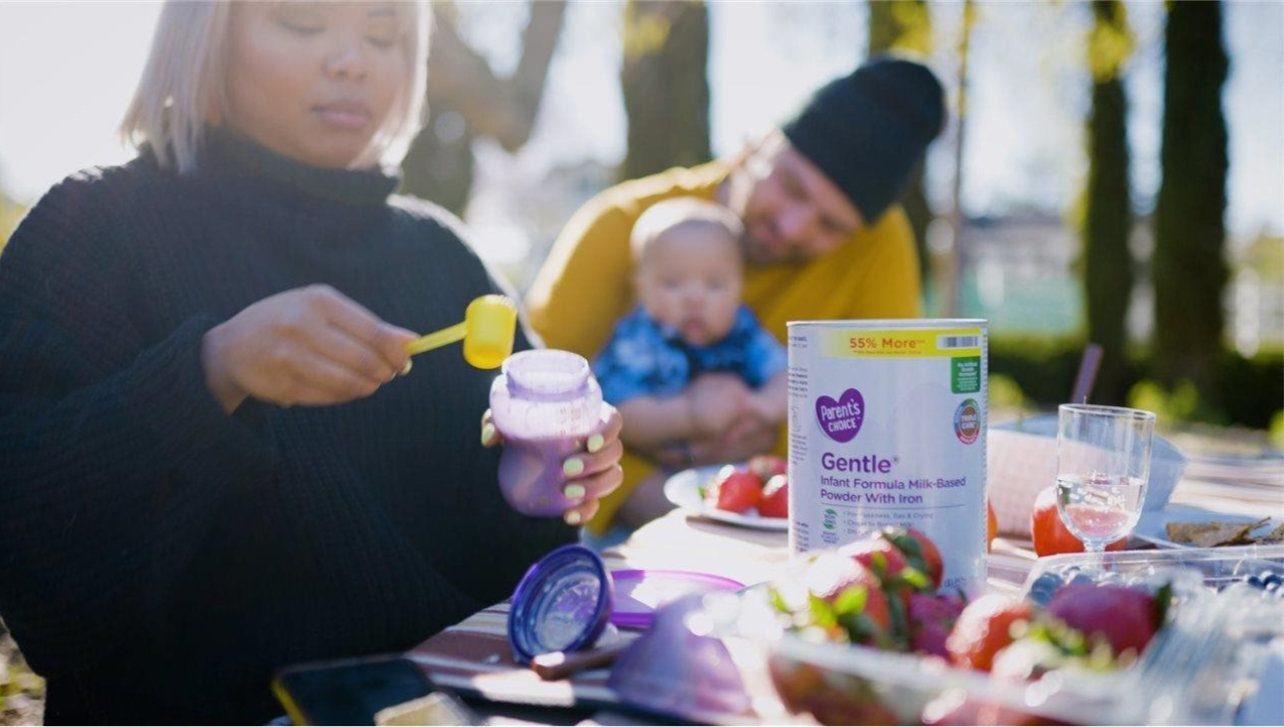Experts weigh in on shortage of baby formula
Two doctors share some of the dos and don’ts of latest crisis
The coronavirus pandemic has created a number of supply chain issues in the past many months, but it’s likely none have met with the kind of urgency as the one that’s making it hard for families to find baby formula.
Federal officials have stepped up in recent days to provide some relief, including the re-opening of the shuttered Abbott Laboratories after a safety recall, and President Biden’s decision last week to invoke the Defense Production Act to make the manufacture of baby formula a priority.
Until shelves are fully restocked with baby formula, a number of parents in Valley Stream and neighboring communities are grappling with the shortage as they worry about how they might feed their children if the supply runs out.
That urgency was felt on Monday as a long line of parents formed outside Masjid Hamza, the Islamic Center of the South Shore, for a baby formula drive,.
Health care providers also have worked around the clock to provide resources — and alternatives. Like Dr. Marc Lashley, a pediatric specialist in Valley Stream, and Dr. Lauren Macaluso, a physician with a specialty practice exclusively dedicated to mothers who are breastfeeding their babies.
Infant formula is preferred over alternatives like cow or goat milk, primarily because formula manufacturers try to mimic breast milk as much as possible, Lashley said.
“They add special ingredients now that can increase brain function and eye development, and cow’s milk can be very harmful,” he said. “When we feed children anything else, we show that they have decreased intellectual abilities, and they can have metabolic problems and growth problems.”
While experts like Lashley recommend breastfeeding over formula, the Centers for Disease Control and Prevention has found that while 84 percent of infants are breastfed soon after they’re born, only 58 percent were still breastfeeding after six months.
“Breastfeeding is always preferred,” Lashley said. “Study after study shows that as good as we are at creating formula, there’s a lot in breast milk that we just can’t replicate. But breastfeeding is not for every mother, and is not always an option.”
There are women who can’t breastfeed, or simply don’t want to, the Northwell-affiliated doctor said. Others have a hard time balancing the demands of breastfeeding with their jobs.
“Sometimes the work environment can be hostile for a breastfeeding mother,” Lashley said. “They don’t have a place for them to pump, and it takes a lot of work and dedication to breastfeed. Some women find it stressful or difficult, or just functionally cannot. And then there are babies that don’t learn how to latch properly on the breast.”
Lashley says the major brands —made by the Abbott, Mead Johnson and Gerber —have the “most science behind them.”
Yet, there are specialty formulas for babies who cannot tolerate cow’s milk, or for babies who are allergic to certain ingredients.
“There are many different kinds of formulas to accommodate a baby’s needs,” Lashley said, “but right now, formulas are in such short supply, people are happy to get any kind of a formula.”
And switching brands can be OK.
“If your baby is on a cow’s milk protein-based formula — which is a very typical formula for babies to be on — then it would be OK to switch between different brands within that same type of formula,” Macaluso said. “But there are kids who are on more different specialty formulas that are hypoallergenic or amino acid-based. Sometimes it can be more difficult for those patients to find those types of formulas.
“I think it’s really important for them to get in touch with their pediatrician if they’re having a hard time finding. And if they are using something that is more specialized, they could require a little more guidance.”
But what can parents do to cope with the baby formula shortage? The U.S. Department of Health and Human Services provides a fact sheet on helping families find formula,” Macalusoi said. There are manufacturing hotlines and a list of community resources found on those sheets.
“Some pediatricians could possibly have in-office samples,” she added, “or obviously suggest a similar baby formula that can be more readily available to parents.”
At the same time, parents must avoid formula alternatives, Lashley said.
“They really have to do everything they can to avoid trying to use cow’s milk or make their own recipe formula,” he said. “In fact, they should not dilute the formula, and they should not be using European formula which is not properly tested. Pediatricians will work with you to help find where shipments are available. I have patients that are relying on the samples in my closet, which are dwindling”.
It’s not unheard of to feed a baby someone else’s breastmilk. In fact, there are existing banks around the country primarily for this purpose — generally helping special needs families, although many are opening up to families affected by the shortage.
Still, Macaluso urges caution.
“You want to make sure safety standards are followed since it is bodily fluid with infection transmissibility,” she said. “If you consider doing something like this, you should have it be a donor that you know and trust. You must consider the donor’s medical history in terms of lifestyle or medications they’re on, and have the donor screened for diseases like HIV and hepatitis.”
The New York Milk Bank screens donors before they are approved to donate, Macaluso said. And when they get the milk, it’s pooled pasteurized.
For more information on the state milk bank, visit NYMilkBank.org.







